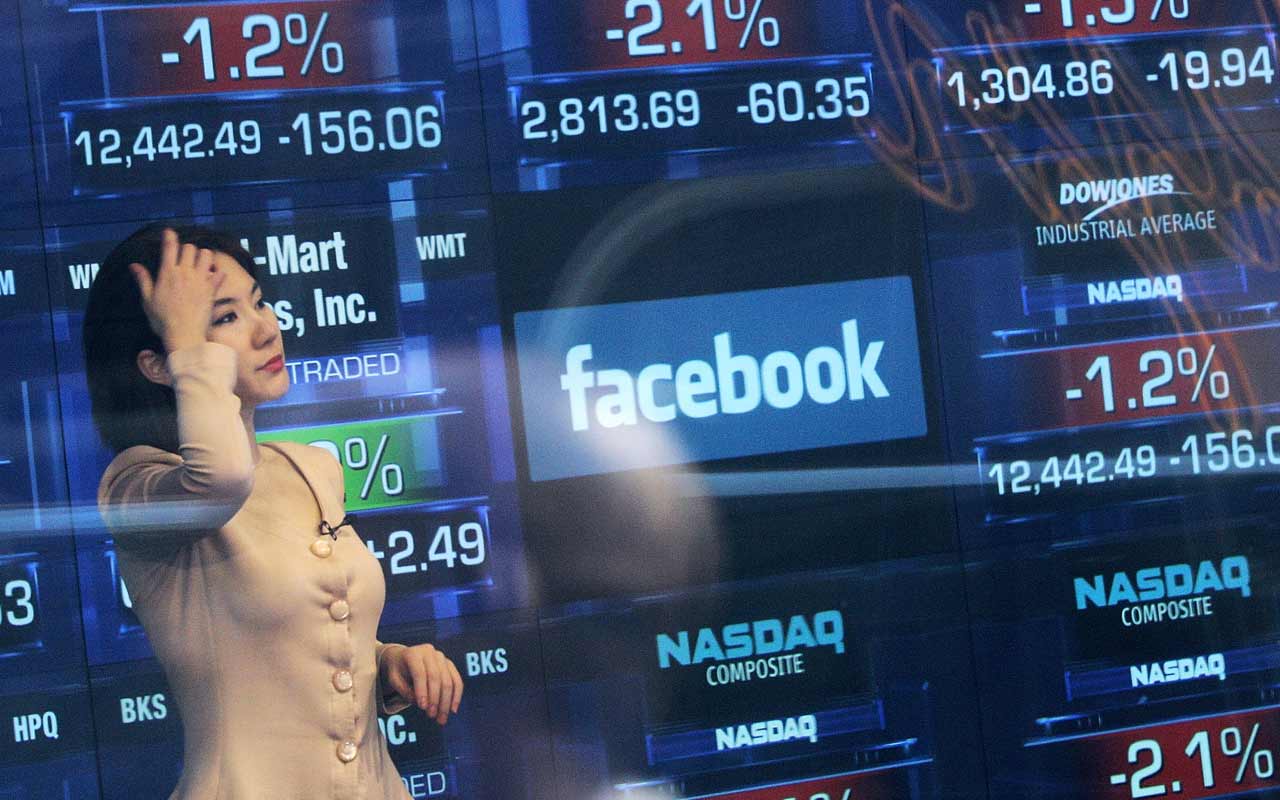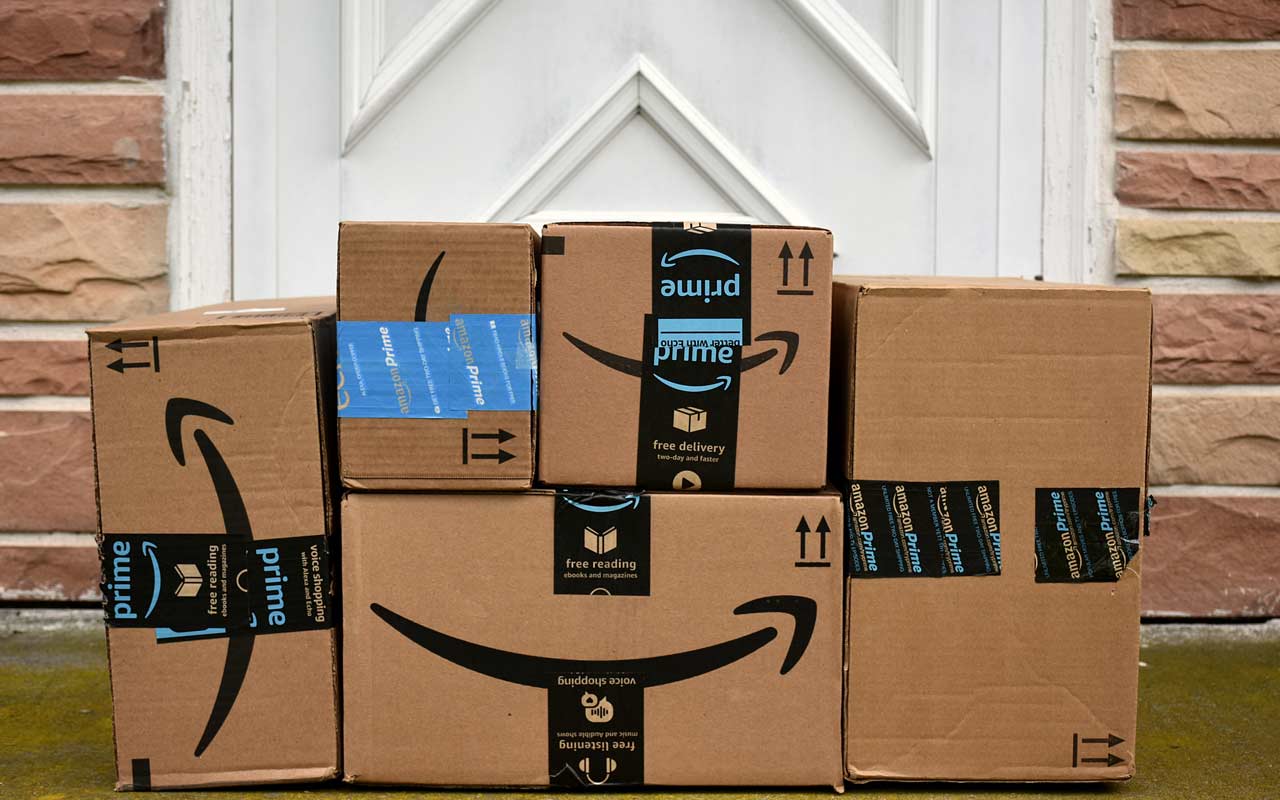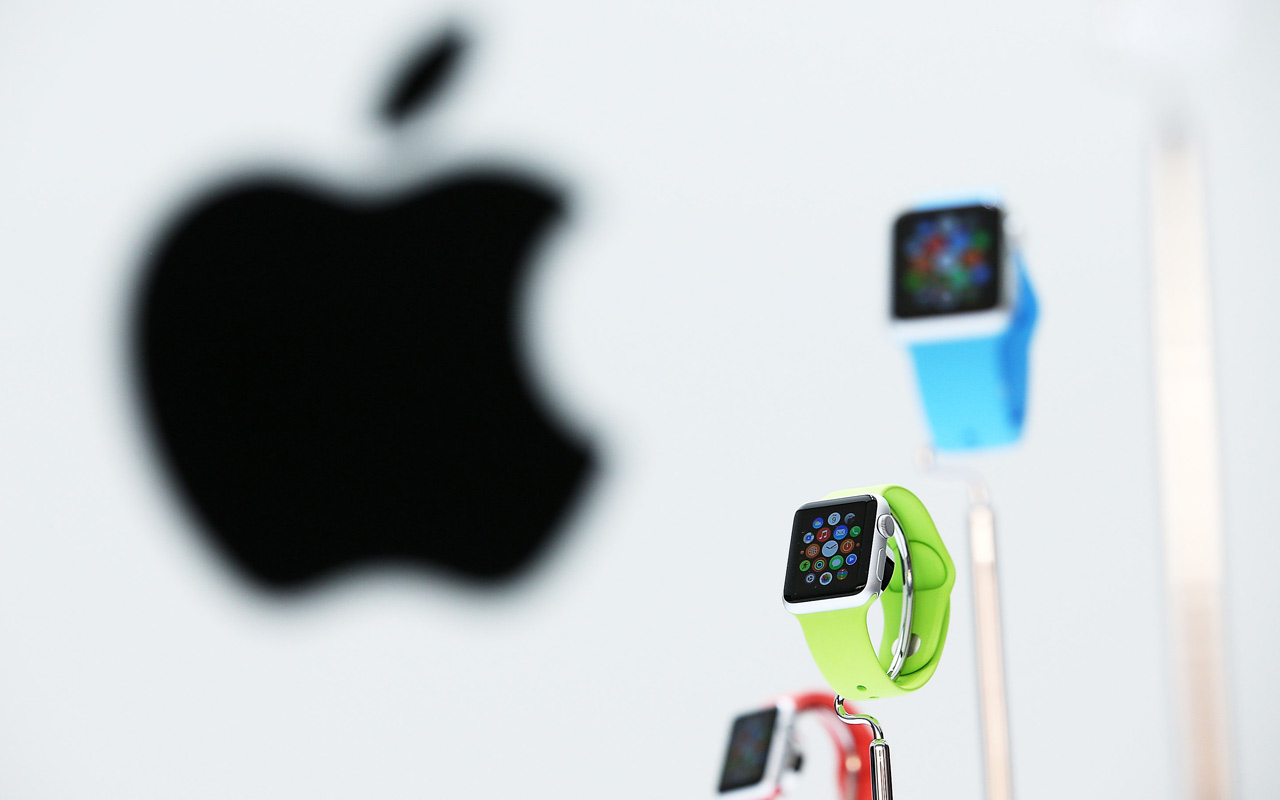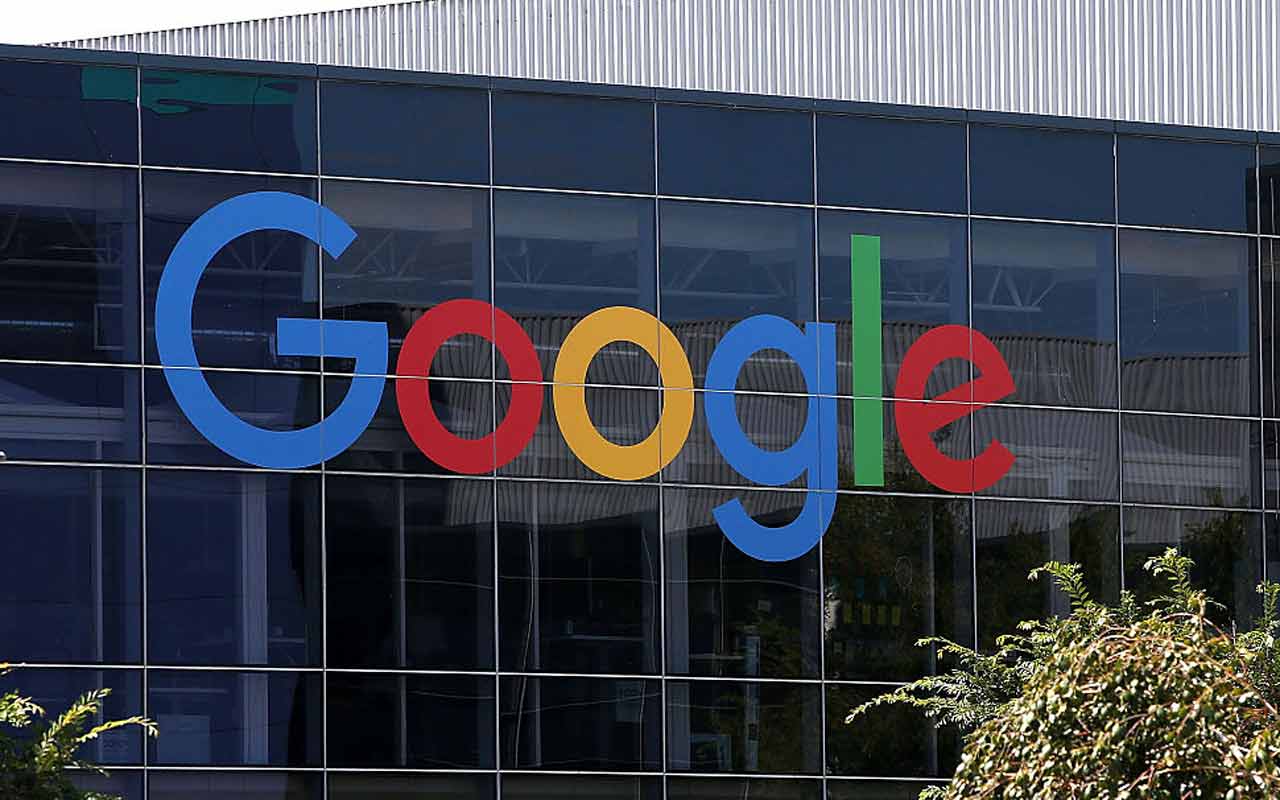FAANG Stocks: Buy, Sell or Hold
Even if you haven’t heard of the acronym, you’ve surely heard plenty about FAANG companies.


Profit and prosper with the best of Kiplinger's advice on investing, taxes, retirement, personal finance and much more. Delivered daily. Enter your email in the box and click Sign Me Up.
You are now subscribed
Your newsletter sign-up was successful
Want to add more newsletters?

Delivered daily
Kiplinger Today
Profit and prosper with the best of Kiplinger's advice on investing, taxes, retirement, personal finance and much more delivered daily. Smart money moves start here.

Sent five days a week
Kiplinger A Step Ahead
Get practical help to make better financial decisions in your everyday life, from spending to savings on top deals.

Delivered daily
Kiplinger Closing Bell
Get today's biggest financial and investing headlines delivered to your inbox every day the U.S. stock market is open.

Sent twice a week
Kiplinger Adviser Intel
Financial pros across the country share best practices and fresh tactics to preserve and grow your wealth.

Delivered weekly
Kiplinger Tax Tips
Trim your federal and state tax bills with practical tax-planning and tax-cutting strategies.

Sent twice a week
Kiplinger Retirement Tips
Your twice-a-week guide to planning and enjoying a financially secure and richly rewarding retirement

Sent bimonthly.
Kiplinger Adviser Angle
Insights for advisers, wealth managers and other financial professionals.

Sent twice a week
Kiplinger Investing Weekly
Your twice-a-week roundup of promising stocks, funds, companies and industries you should consider, ones you should avoid, and why.

Sent weekly for six weeks
Kiplinger Invest for Retirement
Your step-by-step six-part series on how to invest for retirement, from devising a successful strategy to exactly which investments to choose.
Even if you haven’t heard of the acronym, you’ve surely heard plenty about FAANG companies. Facebook, Amazon, Apple, Netflix and Alphabet (represented by a “g” because it was formerly Google) have become darlings of the market in recent years, thanks to the companies’ seemingly limitless abilities to sustain high sales and profit growth rates. Over the past five years, the FAANG five have returned 41.6% annualized, on average, compared with a 15.8% annualized gain for Standard & Poor’s 500-stock index.
But today, the shares look awfully pricey. While the S&P 500 trades for about 20 times estimated earnings for the next four quarters, FAANGs sport an average price-earnings ratio of 69.
As FAANG bears like to point out, the market has gone weak-kneed for growth stocks before, with disastrous results. In the mid 1960s, the Nifty Fifty were high-flying shares of growing companies that seemingly could do no wrong. The stocks soared to excessive price-earnings ratios into the early 1970s, then crashed and burned during the 1973–74 bear market. As Jeremy Siegel, professor of finance at the Wharton School, has put it, the Nifty Fifty demonstrated that investors shouldn’t “pay any price” for growth.
We’re not FAANG bears, but we do think investors should approach the stocks with caution. We’ve rated each stock “buy,” “sell” or “hold.” Only one stock, Apple, merits a buy rating in our view, and even that comes with a caveat: Chances are you already hold a large position in the stock through mutual funds, so be careful not to overload your portfolio.
Data is as of November 13, 2017. Price-earnings ratio are based on estimates for the next four quarters. Click on ticker-symbol links in each slide for current share prices and more.

Facebook: HOLD
The world’s largest social network may be facing political woes, as lawmakers scrutinize Russian abuse of the platform leading up to the 2016 election. But Facebook (FB) has a track record of confronting hurdles head-on. For example, in early 2012 the company acknowledged that it had missed the boat on smartphones—more users were accessing Facebook on their phones, but the company wasn’t running ads on its phone app or mobile site. By the end of 2013, mobile advertising accounted for 53% of total ad revenue, and by the third quarter of 2017, mobile ads accounted for 88% of total revenue of $10.3 billion. Chris Carter, co-manager of the Buffalo Growth fund, says advertisers see spending on Facebook ads as a necessity. “It has nearly an unrivaled audience,” he says, with more than two billion active users. Analysts on average expect Facebook to sustain 27% profit growth over the next five years. That said, the stock is fairly valued at the current price.

Amazon.com: HOLD
Amazon.com (AMZN) is already the reigning king of online shopping, but its ambitions don’t end there. The company holds the number-one market share position in “cloud computing,” in which businesses and individuals rent space on Amazon’s servers to access their data online. With its recent acquisition of Whole Foods, the company seems to be betting on a future of online-ordered groceries. And some industry analysts have stoked speculation that the secretive company is planning a move into the pharmacy industry. Amazon’s “land grab” strategy, as Amana Growth fund co-manager Scott Klimo describes it, requires high ongoing investment spending, which means reported profits could be greatly understating the company’s potential profitability. “Amazon will be able to turn on profitability when it wants to,” Klimo says. However, the land-grab phase could last a long time, and retail sales and groceries are hardly known as high-margin businesses. At a 181 P/E, investors should take a pause on the stock.

Apple: BUY
- Apple (AAPL), the most mature company of the five, is the only FAANG to pay a dividend and the only value stock on the list, with a P/E of 16. Although iPads, Mac computers and sales of services still represent important contributors to the business, Apple is mainly a phone company, with the iPhone accounting for 55% of sales during the company’s most recent quarter. But it’s not just the phone that consumers pay a premium for—it’s the suite of apps and media and integration with other Apple products. “It’s a painful process for an Apple customer to switch to an Android-based phone,” says Carter. And consider that if you adjust its market capitalization for the company’s $269 billion hoard of cash and securities, then Apple’s P/E falls to just 11.

Netflix: SELL
Netflix (NFLX) shares have soared 76.6% annualized over the past five years, as subscribers have grown at a roughly 30% annual clip, to 109 million worldwide. But winning subscribers in the first place is only part of the battle—Netflix also must hold on to those subscribers as competitors launch new services and pull content from Netflix’s platform. In August, for example, Walt Disney announced that it would stop licensing films to Netflix and would instead launch its own streaming service. Netflix knows it needs to fight to hold on to customers’ eyeballs, so it has been investing massive sums in producing its own original high-quality content. Netflix’s business strategy is reasonable, but at a 94 P/E, investors are underestimating the ferociousness of its competition. Consider locking in profits at the stock’s current price.

Alphabet (formerly Google): HOLD
Alphabet’s (GOOGL) ancillary business lines are full of tech-sector buzzwords: self-driving cars, cloud computing, artificial intelligence. But at its core, Alphabet is an ad company. Advertising revenue accounted for 88% of total sales of $22.5 billion in the third quarter of 2017. The big-picture investment rationale for Alphabet goes something like this: As more people around the world spend more time online—Googling things, watching YouTube videos and checking their Gmail accounts—Alphabet sells more ads. But, says Gregg Fisher, founder of investment advisory firm Gerstein Fisher, “like all companies closely tied to a specific revenue stream, there is a significant risk to concentration.” The company’s likely growth rates are already baked into its stock price.
Profit and prosper with the best of Kiplinger's advice on investing, taxes, retirement, personal finance and much more. Delivered daily. Enter your email in the box and click Sign Me Up.

-
 Ask the Tax Editor: Federal Income Tax Deductions
Ask the Tax Editor: Federal Income Tax DeductionsAsk the Editor In this week's Ask the Editor Q&A, Joy Taylor answers questions on federal income tax deductions
-
 States With No-Fault Car Insurance Laws (and How No-Fault Car Insurance Works)
States With No-Fault Car Insurance Laws (and How No-Fault Car Insurance Works)A breakdown of the confusing rules around no-fault car insurance in every state where it exists.
-
 7 Frugal Habits to Keep Even When You're Rich
7 Frugal Habits to Keep Even When You're RichSome frugal habits are worth it, no matter what tax bracket you're in.
-
 Stocks Sink With Alphabet, Bitcoin: Stock Market Today
Stocks Sink With Alphabet, Bitcoin: Stock Market TodayA dismal round of jobs data did little to lift sentiment on Thursday.
-
 Dow Leads in Mixed Session on Amgen Earnings: Stock Market Today
Dow Leads in Mixed Session on Amgen Earnings: Stock Market TodayThe rest of Wall Street struggled as Advanced Micro Devices earnings caused a chip-stock sell-off.
-
 Nasdaq Slides 1.4% on Big Tech Questions: Stock Market Today
Nasdaq Slides 1.4% on Big Tech Questions: Stock Market TodayPalantir Technologies proves at least one publicly traded company can spend a lot of money on AI and make a lot of money on AI.
-
 Fed Vibes Lift Stocks, Dow Up 515 Points: Stock Market Today
Fed Vibes Lift Stocks, Dow Up 515 Points: Stock Market TodayIncoming economic data, including the January jobs report, has been delayed again by another federal government shutdown.
-
 Stocks Close Down as Gold, Silver Spiral: Stock Market Today
Stocks Close Down as Gold, Silver Spiral: Stock Market TodayA "long-overdue correction" temporarily halted a massive rally in gold and silver, while the Dow took a hit from negative reactions to blue-chip earnings.
-
 Nasdaq Drops 172 Points on MSFT AI Spend: Stock Market Today
Nasdaq Drops 172 Points on MSFT AI Spend: Stock Market TodayMicrosoft, Meta Platforms and a mid-cap energy stock have a lot to say about the state of the AI revolution today.
-
 S&P 500 Tops 7,000, Fed Pauses Rate Cuts: Stock Market Today
S&P 500 Tops 7,000, Fed Pauses Rate Cuts: Stock Market TodayInvestors, traders and speculators will probably have to wait until after Jerome Powell steps down for the next Fed rate cut.
-
 S&P 500 Hits New High Before Big Tech Earnings, Fed: Stock Market Today
S&P 500 Hits New High Before Big Tech Earnings, Fed: Stock Market TodayThe tech-heavy Nasdaq also shone in Tuesday's session, while UnitedHealth dragged on the blue-chip Dow Jones Industrial Average.
